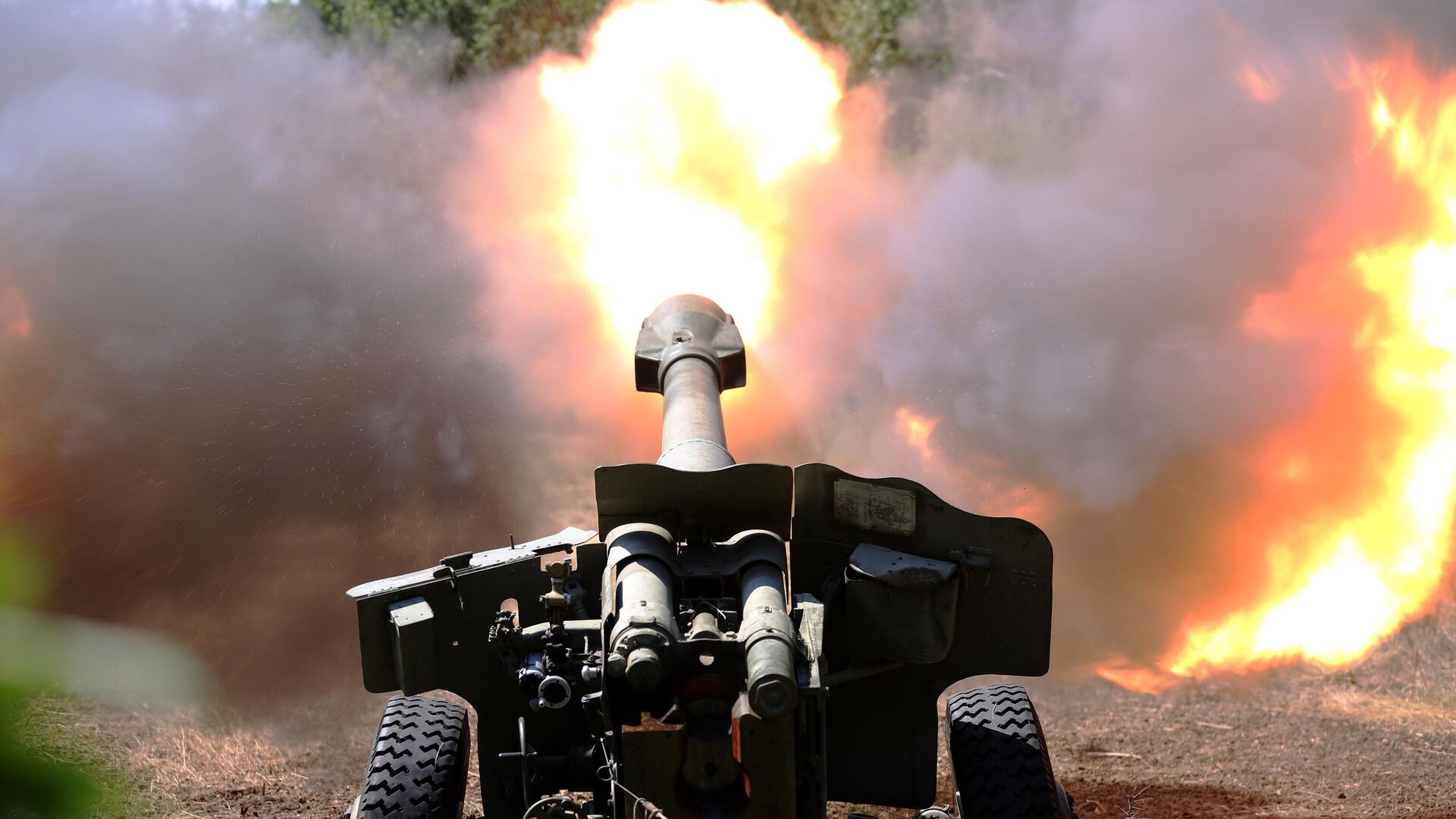https://sputnikglobe.com/20230604/ukrainian-conflict-reveals-western-belief-in--systemic-superiority-1110907727.html
Ukrainian Conflict Reveals Western Belief in 'Systemic Superiority'
Ukrainian Conflict Reveals Western Belief in 'Systemic Superiority'
Sputnik International
International relations and security analyst Mark Sleboda argued that the West became “extremely accustomed” to its global hegemony and unwilling to make compromises “with another great power.”
2023-06-04T18:52+0000
2023-06-04T18:52+0000
2023-06-04T18:53+0000
world
us
west
exceptionalism
sanctions
military intervention
https://cdn1.img.sputnikglobe.com/img/07e7/05/0b/1110261550_0:0:3030:1705_1920x0_80_0_0_03d957d5e7ce01552bfd7f544f95e3c2.jpg
Over the past several months, the United States and its allies have exhibited their willingness to prolong the Ukrainian conflict for as long as possible, eagerly supplying vast quantities of ammo and a wide range of weaponry to Kiev.At the same time, US and European government officials do not seem as eager to try and bring the conflict to a negotiated solution, despite styling themselves as the so-called champions of peace.Speaking on Sputnik’s “Fault Lines” podcast, international relations and security analyst Mark Sleboda argued that, following the end of the Cold War and the fall of the Soviet Union, the West simply became “extremely accustomed” to its global hegemony and unwilling to make compromises “with another great power.”Noting how the United States has been deploying its military around the world and targeting other countries with sanctions for decades, Sleboda also postulated that a “broader European exceptionalism” has emerged in the West to complement the American exceptionalism that Washington often used to justify its actions.The analyst suggested that this state of affairs is essentially a "lingering leftover from the geopolitical catastrophe that was the decades of US unipolar moment."For more sharp analysis, check out the latest episode of Sputnik’s podcast Fault Lines.
west
Sputnik International
feedback@sputniknews.com
+74956456601
MIA „Rossiya Segodnya“
2023
News
en_EN
Sputnik International
feedback@sputniknews.com
+74956456601
MIA „Rossiya Segodnya“
Sputnik International
feedback@sputniknews.com
+74956456601
MIA „Rossiya Segodnya“
russia's military operation in ukraine, western military assistance to ukraine
russia's military operation in ukraine, western military assistance to ukraine
Ukrainian Conflict Reveals Western Belief in 'Systemic Superiority'
18:52 GMT 04.06.2023 (Updated: 18:53 GMT 04.06.2023) The ongoing conflict in Ukraine has, among other things, highlighted what appears to be the United States’ unwillingness to compromise when negotiating with other countries.
Over the past several months, the United States and its allies have exhibited their willingness to prolong the Ukrainian conflict for as long as possible, eagerly
supplying vast quantities of ammo and a wide range of weaponry to Kiev.
At the same time, US and European government officials do not seem as eager to try and bring the conflict to a negotiated solution, despite styling themselves as the so-called champions of peace.
Speaking on Sputnik’s
“Fault Lines” podcast, international relations and security analyst Mark Sleboda argued that, following the end of the Cold War and the fall of the Soviet Union, the West simply became “extremely accustomed” to its global hegemony and unwilling to make compromises “with another great power.”
Noting how the United States has been deploying its military around the world and targeting other countries with
sanctions for decades, Sleboda also postulated that a “broader European exceptionalism” has emerged in the West to complement the American exceptionalism that Washington often used to justify its actions.
“You can call it Western exceptionalism, that they really believe that they are morally and systemically superior to the rest of the world, that the rest of the world would be better off under their rule, and that they simply have a duty to enforce that, not just a moral right, but a duty,” he warned.
The analyst suggested that this state of affairs is essentially a "lingering leftover from the geopolitical catastrophe that was the decades of US unipolar moment."
For more sharp analysis, check out the latest episode of Sputnik’s podcast Fault Lines. 

